A wolf in IT’s clothing: Why Mark Zuckerberg’s style choices matter
The Facebook founder’s changes of look are a serious distraction. While we talk about his beard, we’re not addressing anything else
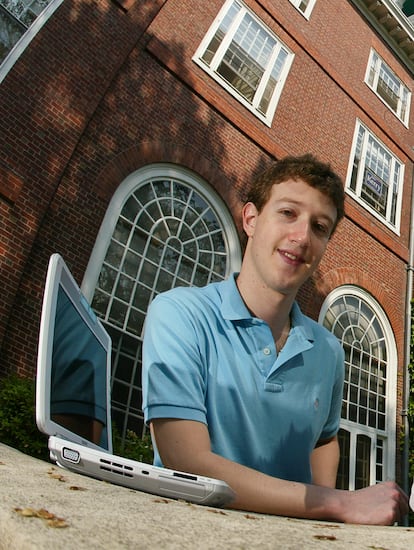
To beard or not to beard is probably the longest-running debate in male aesthetics. Who does it look good on? Does it age you? Does it boost your sex appeal? Does it enhance that intangible, problematic and excessively dwelled-upon characteristic we call masculinity? The latest twist in the beard debate has come in the form of one that doesn’t actually exist: Instagram user TheShadeRoom posted an image of a bearded Mark Zuckerberg, epitome of the Silicon Valley billionaire nerd. The beard had been digitally created and was perfect, of an ideal length, distribution, lushness, texture and color that help make a man’s face irresistible. It even worked on Zuckerberg.
The problem, of course, is that not all men can grow a beard. The growth of the beard — its quality and quantity — depends on genetic, hormonal, and even racial factors. An Asian man will be less likely to have a beard than a Caucasian man, for example. And if it does grow, it will grow mostly around the mouth, while a Caucasian man will have more hair around the neck, chin and cheeks. The problem will be solved when the perfect PhotoShop beard can be applied to real life or, conversely, when we can all live in the Metaverse with beards tailored to suit our features. The good news for Zuckerberg is that the Metaverse is in his hands. In fact, he controls almost everything. To such an extent and so cleverly that we have come to talk only about his physique.
Zuckerberg’s look has been something of a global obsession since his ascent into the mystical-technological heavens at the end of the first decade of the 21st century, when the massive popularity of Facebook changed how we relate to the world and assimilate the reality around us, down to the news we read and the trends we follow. His character became almost messianic: he was the guy who told us how to communicate with each other and who knew everything because he got us to tell him all our details without us realizing. All this in a uniform that was a simple gray t-shirt and jeans. The impact has been such that in 2022, 15 years after Facebook took off, another young billionaire, namely Evan Spiegel, creator of Snapchat, appeared on the cover of Vogue Australia with his wife, the model Miranda Kerr, wearing his own jeans, a string bracelet and a white T-shirt. Louis Vuitton, mind you.
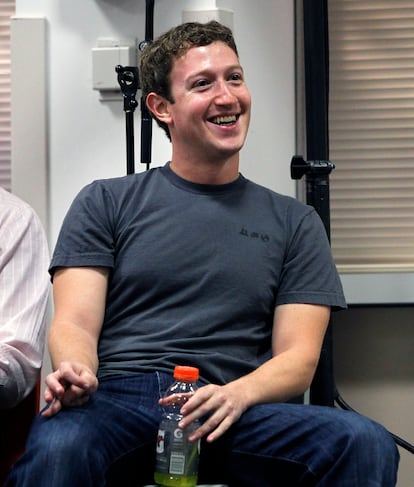
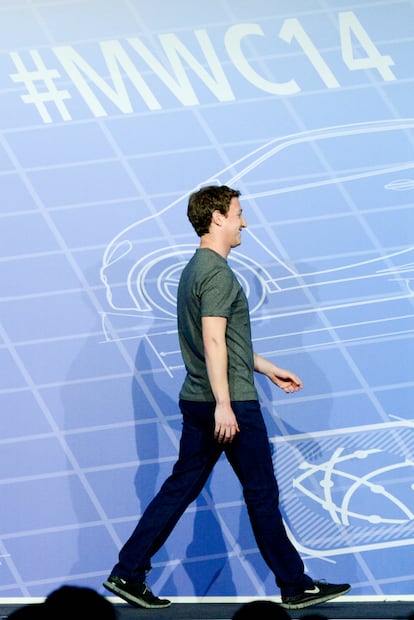
Prior to his meteoric rise, Zuckerberg had been a scrawny, sallow Harvard student who looked like any other student in the early 2000s, loafing about in comfortable t-shirts, baggy jeans and the grim smile of a computer genius who is not comfortable in public or having his photo taken, particularly at a university that has brought charges against him because, in order to create his first technological piece of wizardry, he used student data belonging to the university’s private network. He would have to get used to both the photos and the data controversy.
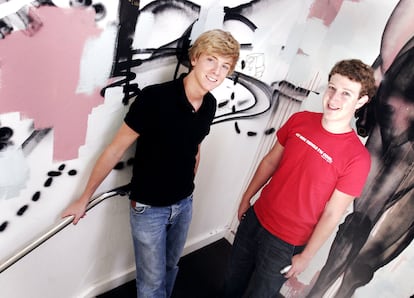
Zuckerberg became a celebrity, albeit a strange one given that he was the first of his kind. The public was used to being titillated by news of people involved in affairs and fashion, but not by details of an individual who programmed things. Zuckerberg was everything one might imagine a computer scientist to be: he dressed plainly, his face was pale, his expression shy. But he defied our expectations of a billionaire: he always dressed the same and lived in a more or less modest four-bedroom house. He showed Oprah Winfrey around this house in 2010. That’s how famous he was: Oprah came to him, not him to Oprah. While showing off a somewhat simple home for someone with his fortune, he explained that he had just donated $100 million to public education in New Jersey.
When it came to meeting politicians and the powers that be, Zuckerberg wore a suit; with the Pope; Barack Obama; and Nicolas Sarkozy. Sometimes, as with Obama, Zuckerberg took off his jacket, loosened his tie and rolled up his sleeves, making it clear that what came across as a disheveled, careless look was actually politics. At other times, the suit appeared to be wearing him: next to Pope Francis or Sarkozy or on stage with Benedict Cumberbatch (Zuckerberg, the star!), he looked more like an awkward teenager dressed as a grown-up and eager to get back into his usual threads.
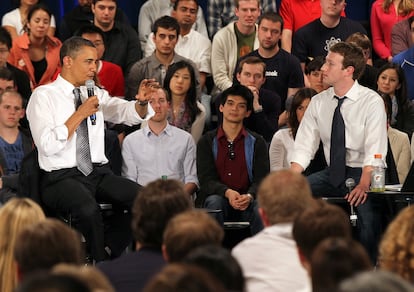
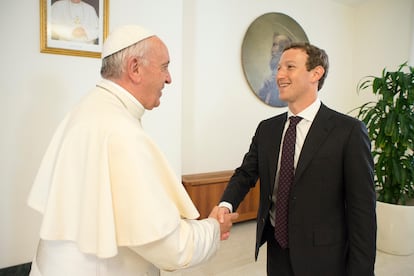
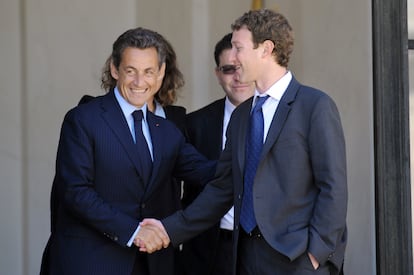
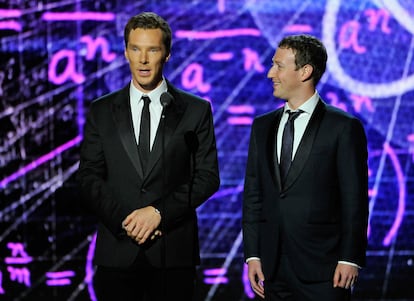
Zuckerberg’s most important, most scrutinized suit, and the one we will always remember, was worn in 2018 when he appeared before the U.S. Congress to testify for the Cambridge Analytica case, the one that revealed that he had been selling all our personal details and not in a good way. By that time, Zuckerberg had already lost ground popularity-wise. He was no longer the humble and shy guy who had made us reconnect with our high school buddies, but the leader of a corporation guilty of all the evils of the world. The suit was navy blue and paired with a blue Facebook tie. Legend has it that Zuckerberg decided to make blue the corporate color of Facebook because, being colorblind, he was unable to distinguish other colors. On a narrative level, the suit had its own character. The New York Times called it the I’m Sorry Suit. Clothes have been invested with a personality of their own before; Liza Minnelli called one of her albums Results because a friend had called a dress “results”: whenever she wore it, men called her back. Zuckerberg’s suit had a similar callback effect: he was asked to testify again in 2020, in 2021 and 2024.
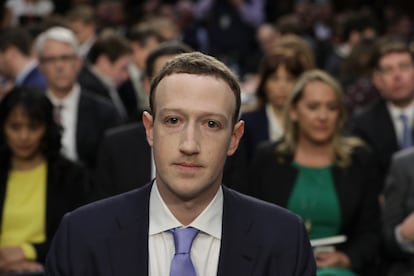
As the Cambridge Analytica scandal exploded, much of the public did what they do whenever they are unable to process the idea that the world is unfair, and someone has taken advantage of their good faith: convince themselves that aliens and androids live among us. At a Q&A session in 2016, someone asked Zuckerberg directly if he was reptilian, a rumor repeated often enough for The Washington Post to devote an article to it. “He barely blinks!”. “He doesn’t gesture!” Zuckerberg responded exactly as a reptilian would: no, he said. His gestures have since been so scrutinized by proponents of that theory that, every year or so, a new photograph emerges in which an undaunted, motionless Zuckerberg looks into the camera, and someone says: Confirmed!
Zuckerberg’s last transformation was to hunk. According to Elon Musk, a rivalry between the pair emerged with Zuckerberg’s decision to launch Threads to compete with X, formerly Twitter, bought by Musk. It was a rivalry that Musk intended to solve in the ring, gloves off. If the cage fight goes ahead, it might put an end to the reptile theory and prove that Mark Zuckerberg is an ordinary earthling, of toxic and misguided masculinity. The truth is that Zuckerberg has been practicing mixed martial arts for some time and building muscle. On his Instagram profile, where he is followed by more than 13 million people, he sometimes brags about his physique by posting shirtless photos. Would a reptile do that?

Vanessa Friedman has said in The New York Times that Mark Zuckerberg has gone from being a dark, robotic, suspicious figure to the friendly, approachable face of Silicon Valley. He’s sporty, he’s vegan, he’s a dad and a hunk! He looks good in that beard he doesn’t have! He’s got a fine head of hair! The fact that we are talking about Zuckerberg’s look, a matter that has gone viral on the platforms he himself controls, shows that while his morality may be in question, as a professional, Zuckerberg scores a ten. And nice beard.
Sign up for our weekly newsletter to get more English-language news coverage from EL PAÍS USA Edition
Tu suscripción se está usando en otro dispositivo
¿Quieres añadir otro usuario a tu suscripción?
Si continúas leyendo en este dispositivo, no se podrá leer en el otro.
FlechaTu suscripción se está usando en otro dispositivo y solo puedes acceder a EL PAÍS desde un dispositivo a la vez.
Si quieres compartir tu cuenta, cambia tu suscripción a la modalidad Premium, así podrás añadir otro usuario. Cada uno accederá con su propia cuenta de email, lo que os permitirá personalizar vuestra experiencia en EL PAÍS.
¿Tienes una suscripción de empresa? Accede aquí para contratar más cuentas.
En el caso de no saber quién está usando tu cuenta, te recomendamos cambiar tu contraseña aquí.
Si decides continuar compartiendo tu cuenta, este mensaje se mostrará en tu dispositivo y en el de la otra persona que está usando tu cuenta de forma indefinida, afectando a tu experiencia de lectura. Puedes consultar aquí los términos y condiciones de la suscripción digital.









































